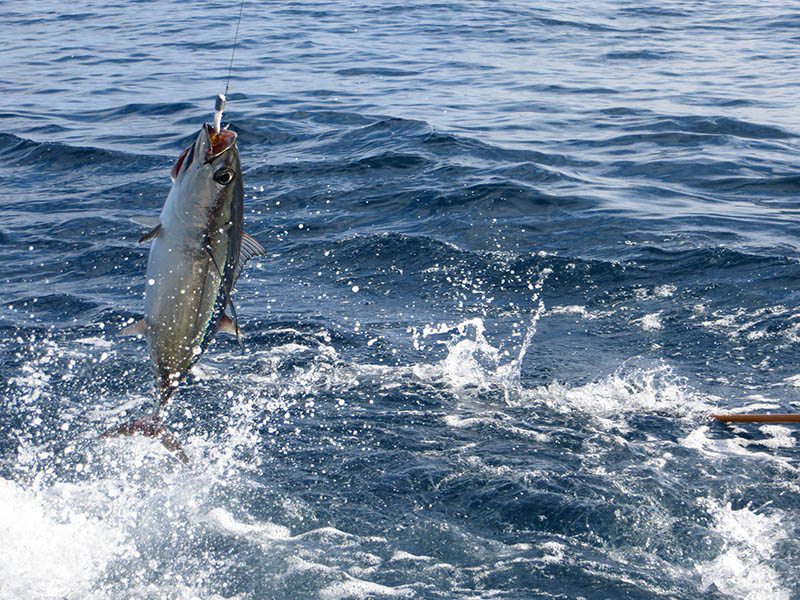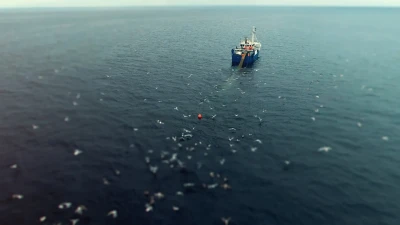Small fish, lower harvest levels and flooding canned markets could put a crimp on the 2020 albacore tuna season as it gets underway in July. In 2019, the industry remained hopeful that the disproportionate number of 2-and-3-year old, 7-pound fish that inundated the population (and the harvest) in the 2018 would come back as 12- to 15-pounders.
The larger fish bring more demand in restaurants and in outlets selling fresh, iced — and blast and bled albacore.
That didn’t happen, according to Wayne Heikkila, executive director of Western Fishboat Owners Association in Redding, Calif.
“There was still a large volume of those small fish,” he says. “And they’re skinny, too.”
Whether small albacore will stymie West Coast albacore trollers again during this year’s season remains to be seen; however, the covid-19 virus threw a wrench in ex-vessel prices with the widespread closure of restaurants in April and May. Though the local fleet doesn’t start working a band of water 30 to 80 miles off the Oregon and Washington coastline until July, boats catching and selling blast frozen bled fish in the South Pacific took a hit during their last deliveries in March.
“So far it’s pretty much put the damper on blast bled markets,” says Heikkila.
“They had to settle for a canned price.” Heikkila adds that blast bled usually gets funneled to high-end restaurants and other outlets, which drives dockside deliveries into the realm of $4,000 per short ton, but the canned market demand is cheaper, with a high end of around $3,200 per short ton.
Last year, the average ex-vessel price came in at around $3,400 per ton. The harvest volume tallied up to 348.3 short tons, for fleet revenues of $1.18 million according to data from PacFin. For the third year in a row, landings were down by around 30 percent from the 20-year average, Heikkila says.
During the onset of the covid-19 regime, the canned market demand remained strong, but Heikkila ventured that it might soften as the months wear on.
“Canned is king right now,” he says. “You can keep canned on the shelf, but at some point, it’s going to catch up, when everyone realizes their garages are piled full of canned albacore and toilet paper."







